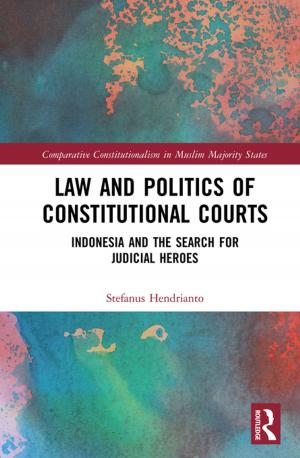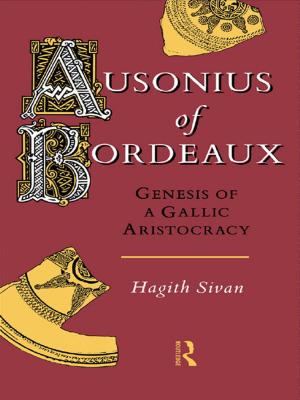Horses, People and Parliament in the English Civil War
Extracting Resources and Constructing Allegiance
Nonfiction, History, Modern, 17th Century| Author: | Gavin Robinson | ISBN: | 9781317121268 |
| Publisher: | Taylor and Francis | Publication: | April 22, 2016 |
| Imprint: | Routledge | Language: | English |
| Author: | Gavin Robinson |
| ISBN: | 9781317121268 |
| Publisher: | Taylor and Francis |
| Publication: | April 22, 2016 |
| Imprint: | Routledge |
| Language: | English |
Horses played a major role in the military, economic, social and cultural history of early-modern England. This book uses the supply of horses to parliamentary armies during the English Civil War to make two related points. Firstly it shows how control of resources - although vital to success - is contingent upon a variety of logistical and political considerations. It then demonstrates how competition for resources and construction of individuals’ identities and allegiances fed into each other. Resources, such as horses, did not automatically flow out of areas which were nominally under Parliament’s control. Parliament had to construct administrative systems and make them work. This was not easy when only a minority of the population actively supported either side and property rights had to be negotiated, so the success of these negotiations was never a foregone conclusion. The study also demonstrates how competition for resources and construction of identities fed into each other. It argues that allegiance was not a fixed underlying condition, but was something external and changeable. Actions were more important than thoughts and to secure victory, both sides needed people to do things rather than feel vaguely sympathetic. Furthermore, identities were not always self-fashioned but could be imposed on people against their will, making them liable to disarmament, sequestration, fines or imprisonment. More than simply a book about resources and logistics, this study poses fundamental questions of identity construction, showing how culture and reality influence each other. Through an exploration of Parliament’s interaction with local communities and individuals, it reveals fascinating intersections between military necessity and issues of gender, patriarchy, religion, bureaucracy, nationalism and allegiance.
Horses played a major role in the military, economic, social and cultural history of early-modern England. This book uses the supply of horses to parliamentary armies during the English Civil War to make two related points. Firstly it shows how control of resources - although vital to success - is contingent upon a variety of logistical and political considerations. It then demonstrates how competition for resources and construction of individuals’ identities and allegiances fed into each other. Resources, such as horses, did not automatically flow out of areas which were nominally under Parliament’s control. Parliament had to construct administrative systems and make them work. This was not easy when only a minority of the population actively supported either side and property rights had to be negotiated, so the success of these negotiations was never a foregone conclusion. The study also demonstrates how competition for resources and construction of identities fed into each other. It argues that allegiance was not a fixed underlying condition, but was something external and changeable. Actions were more important than thoughts and to secure victory, both sides needed people to do things rather than feel vaguely sympathetic. Furthermore, identities were not always self-fashioned but could be imposed on people against their will, making them liable to disarmament, sequestration, fines or imprisonment. More than simply a book about resources and logistics, this study poses fundamental questions of identity construction, showing how culture and reality influence each other. Through an exploration of Parliament’s interaction with local communities and individuals, it reveals fascinating intersections between military necessity and issues of gender, patriarchy, religion, bureaucracy, nationalism and allegiance.















